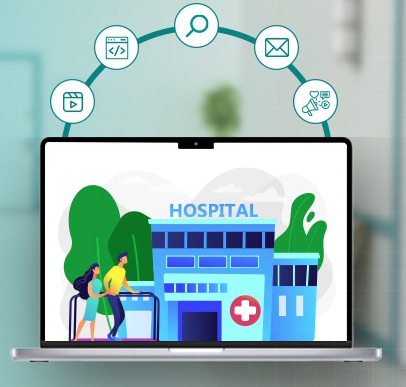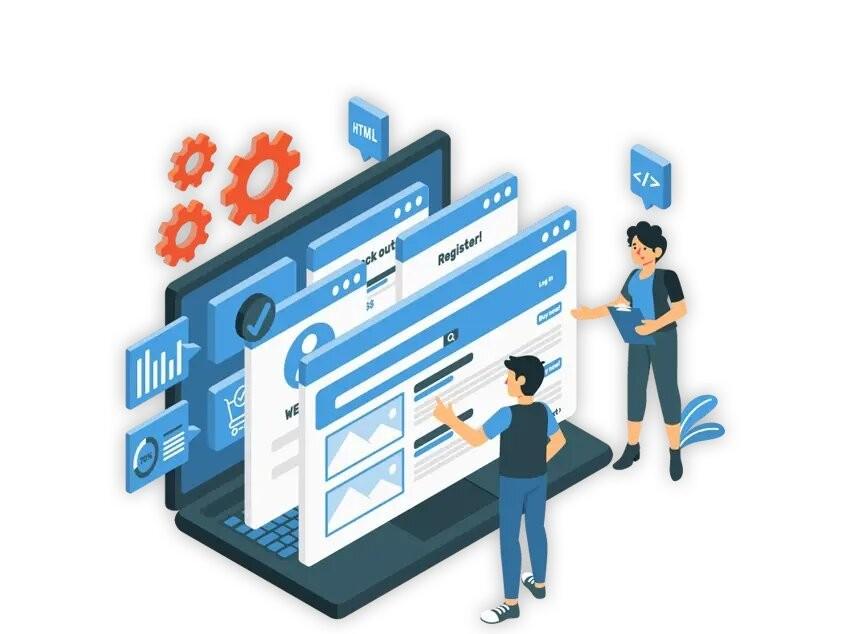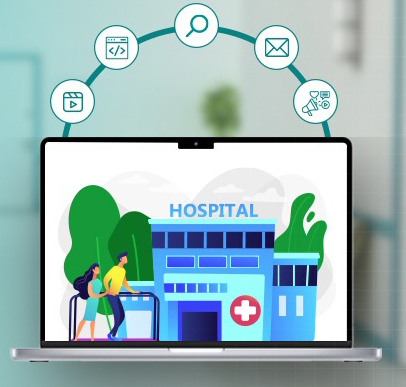The Ultimate Patient Journey Funnel by Healthcare Experts

In the rapidly evolving digital healthcare landscape, creating a seamless patient journey funnel is not a luxury—it's a necessity. A strategic funnel helps transform online visitors into loyal patients, maximizing both engagement and ROI. A Healthcare Digital Marketing Company designs data-driven, user-centric funnels tailored for every stage of the healthcare consumer lifecycle.
1. Awareness Stage – Building the First Contact
The patient journey starts with visibility. High-ranking blog articles, targeted display ads, and social media awareness campaigns are deployed to educate and inform potential patients. These channels raise awareness about symptoms, conditions, treatments, and healthcare facilities.
Paid advertising platforms such as Google Ads and Facebook Ads help target users based on location, health interests, and demographics. Content is SEO-optimized to rank for intent-driven queries, such as “best dermatology clinic near me” or “symptoms of diabetes.” Custom creatives and messaging are tailored to patient personas based on psychographic profiling.
Every engagement point is tracked using analytics tools to measure effectiveness and guide content personalization. This initial connection sets the tone for the rest of the journey.
2. Consideration Stage – Delivering Information-Rich Content
At this stage, potential patients are evaluating their options. A Healthcare Digital Marketing Company develops content assets like comparison guides, treatment breakdowns, video explainers, and physician introduction pages to address patient concerns.
Landing pages are optimized for performance and trust. HTTPS encryption, fast load times, and responsive mobile design ensure frictionless browsing. Patient testimonials, clinical outcomes, and professional certifications reinforce credibility.
Lead magnets such as downloadable wellness guides or pre-consultation checklists are integrated to capture contact details. Marketing automation tools send timely follow-up emails with personalized content to nurture these leads until they’re ready to take action.
3. Decision Stage – Enabling Easy Appointment Booking
The decision stage focuses on conversion. The funnel design ensures that booking an appointment is straightforward, secure, and user-friendly. This is facilitated by online scheduling tools, call-to-action banners, and AI-powered chatbots available 24/7.
Integration with CRM systems enables the tracking of user behaviors and sends alerts to patient care teams. Behavioral retargeting strategies ensure patients who visited specific service pages see related ads or emails tailored to their interests.
A HealthCare Digital Marketing Company ensures the digital interface reflects the physical care experience—professional, timely, and empathetic. The objective is to remove hesitation and provide instant access to care pathways.
4. Retention Stage – Keeping Patients Engaged After the Visit
The journey doesn’t end after the appointment. Continuous engagement is vital for loyalty and lifetime value. Email marketing is used to share health tips, follow-up reminders, and seasonal health alerts personalized to the patient’s history.
Feedback loops are integrated using surveys and NPS forms to improve the quality of care and digital touchpoints. Patient portals allow users to manage appointments, view reports, and consult with doctors digitally.
Re-engagement campaigns are triggered for missed appointments or inactive patients. Push notifications and SMS alerts keep the healthcare brand top-of-mind, ensuring that when the next need arises, the provider is the first choice.
5. Advocacy Stage – Turning Patients into Promoters
Satisfied patients are empowered to share their experiences, boosting the brand organically. A Healthcare Digital Marketing Company strategically encourages reviews across platforms such as Google, Practo, and social media.
Automated follow-ups are timed to request reviews post-treatment. Success stories and testimonials are transformed into branded video content and featured on social media and the website.
Referral programs incentivize existing patients to recommend services to family and friends. This organic growth channel reduces acquisition costs and builds a community around the healthcare brand.
Funnel Optimization with Real-Time Analytics
All funnel stages are continuously monitored and optimized using data from Google Analytics, CRM dashboards, heatmaps, and conversion tracking tools. Funnel leakage points are identified and resolved through A/B testing and UI/UX improvements.
A Healthcare Digital Marketing Company integrates HIPAA-compliant data strategies to maintain privacy and data integrity. This ensures trust while enabling data-driven personalization across the funnel.
KPIs such as Cost Per Lead (CPL), Conversion Rate (CR), and Customer Lifetime Value (CLV) are used to assess funnel efficiency and guide strategic decisions. AI and machine learning tools are implemented to predict patient behaviors and personalize content at scale.
Custom Tech Stack for Funnel Deployment
A robust digital infrastructure supports funnel deployment. Custom-built CMS platforms, appointment APIs, and third-party integrations enable a seamless and scalable system. Each tool is evaluated for interoperability and security before implementation.
Content Management Systems (CMS) are configured to support multilingual content and location-based targeting. Marketing automation platforms handle lead scoring, segmentation, and drip campaigns. Chatbots integrate with CRM to support live and asynchronous communication.
Security protocols, including data encryption and multi-factor authentication, protect patient information. Load balancers and server optimizations ensure availability during high-traffic periods like seasonal flu outbreaks or vaccination drives.
Scalable Funnel Architecture for Multi-Speciality Clinics
For large hospitals or multi-speciality chains, each department is mapped into a mini-funnel. Orthopedics, Cardiology, Dermatology, etc., have individual campaigns, landing pages, and nurture tracks. These mini-funnels feed into a unified CRM, enabling centralized analytics and reporting.
Each department’s funnel is tailored to its unique patient cycle. For example, Orthopedics may emphasize long-term rehab content, while Dermatology focuses on cosmetic treatment visual testimonials.
The modular design allows healthcare brands to scale across locations, specialties, and patient segments without compromising experience or performance. Funnel consistency across departments improves branding and operational efficiency.
Conclusion
A full-funnel strategy transforms how healthcare providers attract, engage, and retain patients. It builds trust through personalization, optimizes conversion paths, and ensures sustained engagement. Partnering with a Healthcare Digital Marketing Company ensures that every stage of the patient journey is engineered for growth and performance.
Pixel Studios offers comprehensive Digital Marketing Services to craft advanced patient journey funnels tailored to clinics, hospitals, and healthtech brands across India.
Note: IndiBlogHub features both user-submitted and editorial content. We do not verify third-party contributions. Read our Disclaimer and Privacy Policyfor details.







